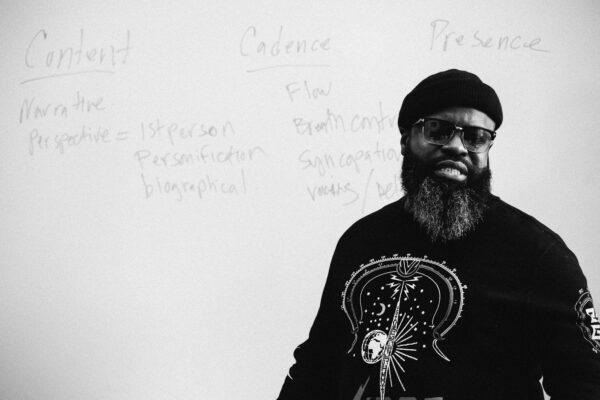Chicago has long been recognized as a hub for lyrical hip-hop talent, from the early days of Common, Kanye West, Twista, and Lupe Fiasco. Artists who have emerged from Chicago’s vibrant music scene have often carved out their own paths. Achieved success without the backing of major labels. There’s something in the water in the Windy City. A special energy that has broken the traditional label-backed path to success. And seeped into the very fabric of hip-hop culture. Let’s explore how specific artists have set the standard for independent hip-hop. And at its core how Chicago’s unique culture and history have shaped this movement.
Chance
Chance the Rapper is perhaps the most well-known of the independent Chicago artists, thanks in part to his groundbreaking 2013 mixtape Acid Rap. With its unique blend of gospel influences, catchy hooks, and introspective lyrics, Acid Rap put Chance on the map. Since then, he is one of the most innovative and exciting artists in hip-hop. Chance has continued to push boundaries with his music, collaborating with everyone from Kanye West to Justin Bieber and releasing critically acclaimed albums like Coloring Book and Surf with Donnie Trumpet and The Social Experiment, one of the most overlooked, gorgeous hip-hop projects you’ll find.
Chance’s independent success led to an unprecedented deal with Apple Music, in which he was given $500,000, exclusive placement, and commercial spots for two weeks of exclusivity for Coloring Book. For all intents and purposes, breaking the system.
Noname
Noname is another Chicago artist who has gained a loyal following for her thoughtful and poetic lyrics, delivered with a smooth, melodic flow. Her 2018 album Room 25 was hailed as one of the best albums of the year, showcasing her sharp wit and social commentary. Noname has consistently used her music and brand as a social outlet. Her strong social media presence, and willingness to confront “uncomfortable topics” head-on have created a fanbase that loves her for her authenticity.
Mick Jenkins
Mick Jenkins fits right in that same mold as well, with socially conscious lyricism, and no fear in discussing topics such as social justice, mental health awareness, and self-growth. Jenkins publicly claimed in an interview with Vice show noisey in 2018 that he didn’t want to sign a deal, after praying he’d get signed for many years.
Saba
Saba, meanwhile, has made a name for himself with his introspective, emotionally charged lyrics and intricate wordplay. His 2018 album CARE FOR ME and 2022’s Few Good Things were both breakthrough moments for the artist, showcasing his ability to tackle difficult subjects with grace and sensitivity. Saba is one of those rare musicians whose art supersedes all else. In an era where fans expect drama, a proverbial reality show from the artists they look up to.
One of the keys to Saba’s individual success is Pivot Gang, a collective of Chicago artists led by Saba, Joseph Chilliams, the deceased John Walt, and MFnMelo. Pivot has also gained a dedicated following for its innovative approach to hip-hop. Jazzy, soulful beats and introspective lyrics are the formula. And with them, Pivot Gang has carved out a unique space for themselves in the crowded Chicago scene.
So what sets Chicago apart from other cities in terms of independent rap talent? For one, the city has a long history of producing innovative and boundary-pushing artists, from jazz legends like Nat King Cole and Benny Goodman to blues pioneers like Muddy Waters and Howlin’ Wolf. This rich cultural history has helped to shape Chicago’s music scene. Consistently becoming one that values creativity and innovation above all else. Its vision has always been music-first, never tied to mainstream pop culture, or current trends.
Additionally, Chicago has a strong sense of community among its independent artists. With many of them collaborating and supporting one another in their musical pursuits. Leading to numerous collaborations between Chicago artists across genres and styles.
The terms “underground rapper” or “independent rapper” are often met with scorn in other markets. It is generally not a respected path or one that music fans often associate with success. But in Chicago, these terms are an area of pride. Independence is not individual. Instead, it is a community of musicians that support each other. And, most importantly rely on proven models to transcend negative connotations.









Leave a Reply